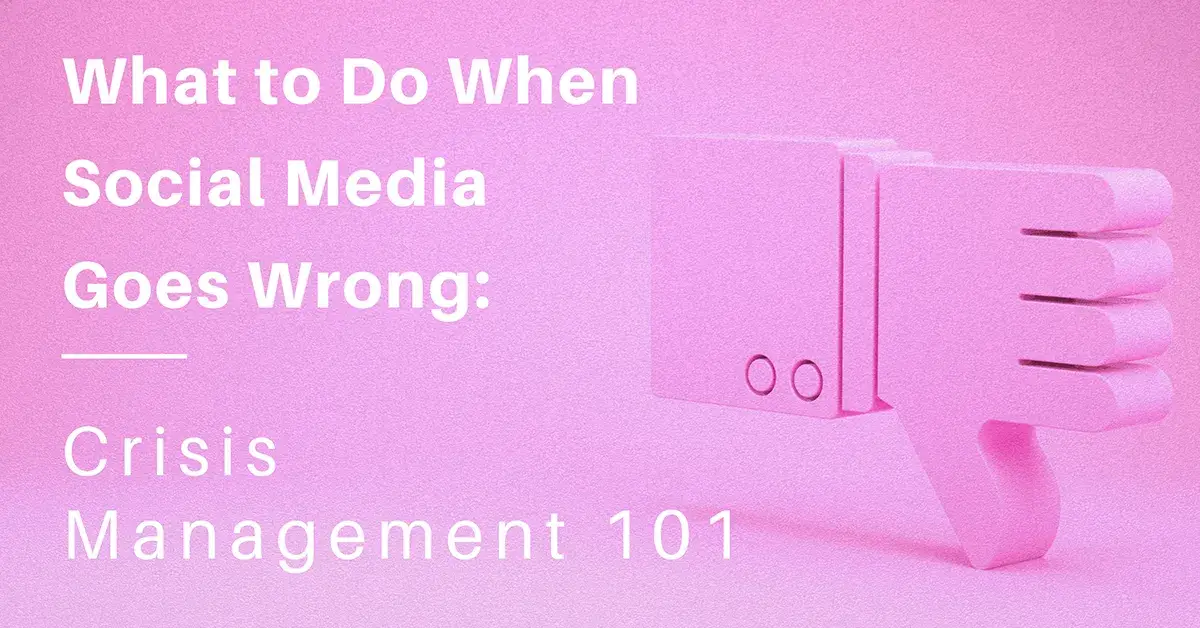

Even a minor slip-up on social media can mushroom into a major reputational crisis almost instantaneously. From tone-deaf tweets to problematic Facebook posts, social media missteps can generate significant negative publicity and damage your brand’s reputation. While it’s tempting to go into damage control mode, deleting posts, and issuing rushed apologies, these reactive measures often exacerbate the situation. Instead, effective crisis management requires a planned, organized approach. In this comprehensive guide, we’ll walk you through the essential steps to navigate and recover from a social media crisis.
The instantaneous nature of social media demands swift action. But it’s important not to let the sense of urgency cloud your judgment. Speed is important, but accuracy and thoughtfulness are just as crucial. Take a moment to assess the gravity of the situation. Is it a customer complaint gone viral, or is it something more serious, like an offensive post from your company account? The scale of the issue will dictate the size of your response. Quick action paired with prudent evaluation can save you from unnecessary complications later.
In an era where consumers value authenticity and transparency, your response should reflect these qualities. However, being transparent doesn’t mean exposing every intricate detail about what went wrong. Focus on admitting the mistake, sharing what you know, and detailing what steps you’re taking to correct the situation. Be particularly cautious about making promises or commitments that you may not be able to fulfill. Over-promising and under-delivering can result in further public relations setbacks.
Your choice of platform for delivering your response is nearly as important as the message itself. If the issue started on Instagram, your initial response should also be on Instagram. Failing to respond on the originating platform can make it seem like you are ignoring the issue or, worse, attempting to hide it. Once you’ve issued your primary response, propagate the message across your other social media channels to ensure a consistent narrative.
After meticulously crafting your response, publish it on the agreed-upon platforms. Pin this statement to the top of your social media profiles to ensure that it’s the first thing people see when they visit your pages. If the situation is severe enough to warrant a press release, distribute that to appropriate media channels.
After your statement is public, the job isn’t over. Assign team members to monitor social media reactions and customer inquiries continuously. Utilize social media listening tools to gauge the public sentiment. Are people appeased by your response, or do they continue to express dissatisfaction? Their reactions will guide your subsequent actions, which might include additional statements or corrective measures.
It’s not enough to just issue a statement and hope for the best. The public will expect ongoing communication. Reply to comments, answer questions, and clarify uncertainties. A crisis is also an opportunity to demonstrate your brand’s commitment to its values and to customer satisfaction. Don’t shy away from tough questions; confronting issues head-on builds brand trust.
While it’s beneficial to have an in-house team ready to tackle social media crises, there’s also tremendous value in seeking professional help. A digital marketing expert in crisis management can bring an outside perspective, free from internal biases, to objectively assess the situation. They can draw upon their experience with similar crises in other organizations to recommend proven strategies for damage control.
If a crisis seems too large to manage, if your team lacks the necessary experience, or if initial efforts to resolve the crisis have failed, it’s time to consult a professional. Many firms, like ours, offer 24/7 crisis management services, ensuring that you’re never alone when a crisis hits.
Our crisis management service provides real-time monitoring, expert analysis, and strategic guidance, all customized to your specific needs. With the help of our crisis management solutions, you can navigate the complexities of a social media crisis, minimize the impact, and lay the foundation for a stronger brand reputation moving forward.
Social media crises are unpredictable and can threaten to derail even the most robust marketing strategies. But they’re not insurmountable. Whether you handle it in-house or decide to hire a professional, the key lies in rapid yet considered action, open communication, and a commitment to learning and improvement. With these elements in place, you can turn a social media crisis into an opportunity for brand growth and public trust-building.